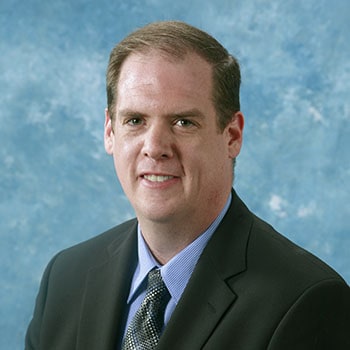Advisory Board Section
Research
Primary Website
Biography
Additional Title
- Director, Nuclear Energy and Fuel Cycle Division, Oak Ridge National Laboratory
Dr. Busby is the Division Director for the Nuclear Energy and Fuel Cycle Division in the Fusion and Fission Energy and Science Directorate at Oak Ridge National Laboratory. His contributions range from light water reactors to sodium reactors and space reactor systems as well as research in support of the ITER project.
Dr. Busby’s research is focused on materials performance and the development of materials for nuclear reactor applications. While at ORNL, Dr. Busby has participated in materials research efforts for space reactors, fusion machines, advanced fast reactors, and light water reactors. Ultimately, the results of this diverse research will enable the development of operating criteria for structural materials in a variety of adverse environments that will allow for design and operation of safe, reliable, and cost-effective nuclear systems.
Dr. Busby was the lead for the Materials Aging and Degradation Pathway for the DOE –Office of Nuclear Energy Light Water Reactor Sustainability Research and Development program from 2009 to 2015.
He also led the Nuclear Energy Enabling Technologies Materials Cross-cut effort, in addition to participation in several nuclear industry-sponsored research tasks.
As principal investigator for the DOE Office of Science ITER Program, he led an investigation into the feasibility of utilizing an innovative cast austenitic stainless steel (SS) for the first wall structure of the international ITER project. The ORNL team utilized advanced computational thermodynamics modeling to successfully devise a cast SS within the internationally approved chemical composition limits for the ITER stainless steel with a tensile strength comparable to wrought stainless steel (>50% improvement in strength over the cast stainless steel previously developed by industry), without compromising other properties. In 2010, Dr. Busby received the Presidential Early Career Award for Science and Engineering, following this effort for “excellence in research leading to the development of high performance cast stainless steels, a critical part of the U.S. Contributions to ITER project, and for his mentoring of students both as an Adjunct Assistant Professor at the University of Michigan and at ORNL.”
In 2011, he was awarded a Secretary of Energy Achievement Award for contributions to DOE’s response to Fukushima. The American Nuclear Society presented Dr. Busby with the Landis Young Member Achievement award in 2006 and, in 2007 he received the ORNL Early Career Award for Engineering Accomplishment for his leadership in the cast stainless steel effort.
He is an Adjunct Assistant Professor of Nuclear Engineering and Radiological Sciences at the University of Michigan and has developed and taught his own graduate-level course in materials degradation and performance for fission and fusion reactors. He also is heavily involved in the leadership of many professional society activities.
Education
University of Michigan
PhD Nuc Engr ’00
Kansas State University
BS Nuc Engr ’95
Research Interests
Irradiation effects in metals for high temperature reactors, fusion reactors, and spacecraft reactors, radiation-effects in refractory metals, identifying the mechanisms of embrittlement for materials under high temperature irradiation, irradiation-assisted stress corrosion cracking, radiation-induced microstructure and microchemistry changes, characterization of radiation-induced changes, deformation mechanics, transmission electron microscopy, scanning electron microscopy.
Dr. Busby’s research is focused on materials performance and development of materials for nuclear reactor applications. Dr. Busby has participated in materials research efforts for space reactors, fusion machines, advanced fast reactors, and light water reactors.
